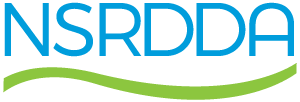Use of Botulinum Toxin (Type A) and Esthetic Therapies in Dental Practice
November 2019
The Standard of Practice for the Use of Botulinum Toxin (Type A) and Esthetic Therapies developed by the Alberta Dental Association and College (ADA+C) and approved in 2016 has been modified with permission for use by the Provincial Dental Board of Nova Scotia (PDBNS).
This document is the Standard of Practice in relation to the use of Botulinum Toxin (Type A) and esthetic therapies. Since contravention of the Standard may be considered professional misconduct, dentists employing Botulinum Toxin (Type A) and esthetic therapies must be familiar with its content, be appropriately trained, and regulate their practices accordingly.
This document indicates the minimum standards for the use of Botulinum Toxin (Type A) such as Botox®, Xeomin®, Dysport® and esthetic therapies in dentistry.
CERTIFICATION LEVELS AND EDUCATIONAL REQUIREMENTS
To obtain a certificate to provide the treatments outlined in this Standard, dentists/dental specialists must submit an application along with documentation of their training to the PDBNS. The application and supporting documents will be reviewed and a certificate will be issued if the applicant’s training meets the Standard. It is considered professional misconduct to provide the care outlined in this Standard without a certificate.
In addition, the dentist/dental specialist must demonstrate evidence of continuing education in the field of facial esthetics and adjunctive procedures. Dentists/dental specialists with certificates to provide the care outlined in this Standard must include a minimum of 10 hours of continuing dental education in the field of facial esthetics and adjunctive procedures in their 3-year continuing education cycle to maintain certification.
For the purposes of this Standard, educational requirements and subsequent issuing of certificates has been divided into 6 structured and gated levels. A dentist/dental specialist cannot proceed to a subsequent level without completing the requirements of the preceding level.
All inquiries regarding Botox® applications should be directed to PERMITS@NSRDDA.CA
Dentists must submit a single application for Level 1 and Level 2 for which there will be a $200 fee.
There will be a $400 application fee for each level beyond level 2.
Dentists with a Botox® permit are not permitted to commence training for the next level until they submit 20 cases (at their current level) to the NSRDDA, they are reviewed, and they receive permission to proceed with training to the next level.
Permits will be issued to successful applicants within 2-3 weeks of the submission of a completed and successful application.
To apply for a Botox Permit, please click HERE to log into your Alinity account. On your account main page, under available forms is where you can access the Botox Permit Application.
